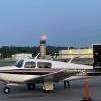Amount of Corrosion X Needed
-
Members Online
- EarthboundMisfit
- NickG
- LP1
- atpdave
- Fix
- jetdriven
- Rick Junkin
- Will.iam
- Fritz1
- kortopates
- AnimalFlyer
- raymondscott0321
- crustymuffin
- kaba
- N204TA
- JoeA
- ToddCC22
- ArtVandelay
- PT20J
- Ronnie Pool
- wombat
- mooneydemi
- Meshach
- Skates97
- podair
- Glen Davis
- hubcap
- Ibra
- Hank
- Dammit Bill
- 1980Mooney
- alextstone
- JustusSJ
- Scottknoll
- Bob Weber
- Slick Nick
- Hamburglar
- Air pirate
- Graf_Aviator
- MatthiasArnold
- flyfast
- 0TreeLemur
- Matt M
- TravelingIA98
- Bob K


Recommended Posts
Join the conversation
You can post now and register later. If you have an account, sign in now to post with your account.